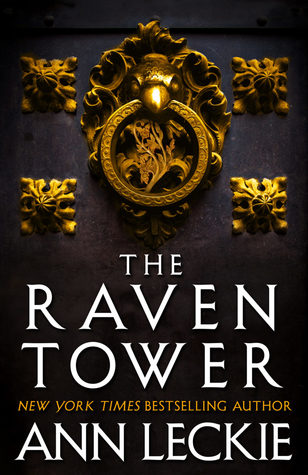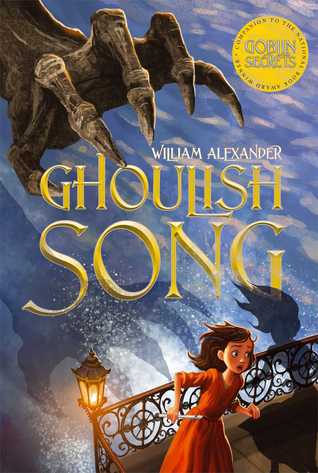How by all the trees of the forest are you supposed to review this book? The experience of reading it is the most fun, fascinating, mind-warping ride through time, space and existentialism I've had since ... well, since reading Ancillary Justice. But I can't tell you a thing about it because that would ruin your ride.
I went to Goodreads to see how other people manage it—it turns out most people just spoil everything, so proceed with caution*—and someone's review said ... oh, mmblefarg, I can't even tell you that without spoiling a lot of things! Here, I'll make it small and yellow so you can't see it unless you highlight it: it's inspired by Hamlet. My brain just exploded. It's frigging Hamlet, people. As in, mad Ophelia, Rosencranz and Guildenstern, Horatio ... it's a Shakespeare retelling and I didn't even notice.
Suffice it to say it's one more layer of utter brilliance that retroactively doubled my enjoyment of the whole book!
What can I say to make you want to read it? People have warned that it starts slowly, and it does. You think it's about an heir returning from the war front to discover his uncle has usurped his place. If you then expect lots of politicking and/or fighting for him to regain his throne, you will be disappointed. The plot is both smaller and much, much larger than that. I think I can safely tell you gods are involved. (I was thinking Greek tragedy as I was reading. Turns out I wasn't far off.)
People have talked about the narrative voice: it starts out in second person, which is clever and technically challenging and could be really annoying after a while, except that you figure out fairly quickly who "you" is, so then you start wondering to yourself who might be talking. That takes a fun while to figure out, and once you piece that together, you wonder why the speaker is addressing the you, and you slowly work that out over the course of the novel (as does 'you').
The whole novel is a mystery, and it's a mystery you the reader are figuring out with a slightly different set of clues from you the character. Leckie does the same thing she did so brilliantly in Ancillary Justice: weaving a past and a present timeline together so that the things you learn in each timeline explain just enough of the other timeline to raise the stakes and make you care more. And keep you guessing!
But I hate books that deliberately withhold information so you can be surprised at the twist ending. Leckie doesn't do that. She gives you enough information to be pretty sure you know what's going to happen, but to be intensely curious how it's going to play out, and then you get the next bit of information and realize, oh, ho, now I see what's going to happen! And now I'm even more curious! And then the ending happens, and you're like, "Woah, didn't see that coming! But she was telling me all along that that's what was going to happen!"
I spent a lot of time while reading this with a big grin on my face, and I wasn't even sure what I was grinning at. I just love the way Leckie plays with my brain, I guess. And her characters. We are told nothing about them; we only know what they say and do, and what they speculate about each other, so it is difficult at first to connect with them, to know who to root for. But words and actions and speculation are what create character, and by the end I just loved the two people whose names I can't tell you because that would be spoilery! Fist-punching yes-shouting love.
There is so much going on in this novel. Leckie dissects human society and power and loyalty and faith and all those things you can play with when you've got kingdoms and gods and war and usurpation. But she's also playing with stories and the power of words and the power of who gets to tell the story. And the fundamental premise at the heart of all stories about magic: be careful how you say what you wish for.
Note that she has been developing this world of gods making deals with humans for many years; there are a lot of short stories available online that will give you a flavour. Try The Nalendar, for example.
At a restaurant recently I had a dish called Roasted Cauliflower in Romesco Sauce that was so delicious I had to try it at home: I roasted tomato quarters and red pepper chunks and onion wedges with the cauliflower florets, olive oil, salt, pepper and paprika for a good hour and a half, until all the flavours were intense and rich. Added a splash of apple cider vinegar and some smoked paprika. (The restaurant version had toasted almonds and crispy capers, and I'm sure there was garlic but I didn't have any on hand.) Lots of complex flavour layers and the surprise of cauliflower tasting that good (really it's just a mild vehicle for the sauce). I was as happy eating it as I was reading this book!
*I have not given you a link to the Goodreads page for this book, because I really, really don't want you to get inadvertently spoiled. This review from By Singing Light is excellent and entirely non-spoilery. Ditto everything she said!
Saturday, April 27, 2019
Monday, April 22, 2019
Inkling, by Kenneth Oppel
An ink blot comes to life and makes friends with a boy. I love this idea and I love what Oppel did with it!
 Inkling is completely convincing as a character, from the moment he pulls himself out of Ethan's dad's sketchbook, has to run for his life from Rickman the cat, and takes refuge in Ethan's room. He eats ink for sustenance, and gains vocabulary and understanding from the comics and books he ingests. It's brilliant and hilarious the way his writing reflects what he just ate. (The scene after he eats some of Anne of Green Gables is worth buying the book for.)(Oppel is Canadian: he's allowed to poke gentle, loving fun at one of our icons.)
Inkling is completely convincing as a character, from the moment he pulls himself out of Ethan's dad's sketchbook, has to run for his life from Rickman the cat, and takes refuge in Ethan's room. He eats ink for sustenance, and gains vocabulary and understanding from the comics and books he ingests. It's brilliant and hilarious the way his writing reflects what he just ate. (The scene after he eats some of Anne of Green Gables is worth buying the book for.)(Oppel is Canadian: he's allowed to poke gentle, loving fun at one of our icons.)
Ethan is terrible at drawing, even though his dad is a famous comic book artist. Inkling's ability to draw anything is an obvious and tempting solution to the art project that is stressing Ethan out. But Inkling has to figure out his own purpose for existence, separate from what everyone else wants from him.
This is a family story, a friendship story, a story about art and consumerism, about trust and loyalty. It's delightful and funny and goes to some really interesting, deep places. Every character is thoughtfully motivated, including all the adults. Moral dilemmas all over the place, treated with the respect they deserve. The right answer isn't always obvious or easy.
I loved Ethan's relationship with his younger sister Sarah; I loved Sarah's relationship with Inkling and her perspective on things. I loved that her Down Syndrome isn't an issue or a problem or noteworthy in any way.
Ethan's family just felt so real. Ethan's dad is believably absent-minded enough that Ethan has to take a lot of responsibility for caring for himself and his sister, but he's not one of those negligent parents that adults hate to read about in middle-grade books! There's sadness because their mom died, but a lot of love and mutual support.
Even Rickman gets his own small but important character arc.
Inkling made me smile on so many different levels: the way the plot played out, the way the characters developed, the cleverness of the ideas, the layers of humour. It may also have gotten me a little teary-eyed at some points, and I was on the edge of my seat in several suspenseful scenes. Definitely no sense of "I'm an adult appreciating a book written for kids": I was immersed.
A highly entertaining and compelling offering from one of Canada's foremost writers. (I've gushed about Kenneth Oppel before. He's just fantastic.)
My Easter breakfast this morning was French toast with 9% lemon yogurt (just as good as whip cream) and blackberries. Sweet and comforting with extra zings of flavour. Just as enjoyable and filling as this book!
 Inkling is completely convincing as a character, from the moment he pulls himself out of Ethan's dad's sketchbook, has to run for his life from Rickman the cat, and takes refuge in Ethan's room. He eats ink for sustenance, and gains vocabulary and understanding from the comics and books he ingests. It's brilliant and hilarious the way his writing reflects what he just ate. (The scene after he eats some of Anne of Green Gables is worth buying the book for.)(Oppel is Canadian: he's allowed to poke gentle, loving fun at one of our icons.)
Inkling is completely convincing as a character, from the moment he pulls himself out of Ethan's dad's sketchbook, has to run for his life from Rickman the cat, and takes refuge in Ethan's room. He eats ink for sustenance, and gains vocabulary and understanding from the comics and books he ingests. It's brilliant and hilarious the way his writing reflects what he just ate. (The scene after he eats some of Anne of Green Gables is worth buying the book for.)(Oppel is Canadian: he's allowed to poke gentle, loving fun at one of our icons.)Ethan is terrible at drawing, even though his dad is a famous comic book artist. Inkling's ability to draw anything is an obvious and tempting solution to the art project that is stressing Ethan out. But Inkling has to figure out his own purpose for existence, separate from what everyone else wants from him.
This is a family story, a friendship story, a story about art and consumerism, about trust and loyalty. It's delightful and funny and goes to some really interesting, deep places. Every character is thoughtfully motivated, including all the adults. Moral dilemmas all over the place, treated with the respect they deserve. The right answer isn't always obvious or easy.
I loved Ethan's relationship with his younger sister Sarah; I loved Sarah's relationship with Inkling and her perspective on things. I loved that her Down Syndrome isn't an issue or a problem or noteworthy in any way.
Ethan's family just felt so real. Ethan's dad is believably absent-minded enough that Ethan has to take a lot of responsibility for caring for himself and his sister, but he's not one of those negligent parents that adults hate to read about in middle-grade books! There's sadness because their mom died, but a lot of love and mutual support.
Even Rickman gets his own small but important character arc.
Inkling made me smile on so many different levels: the way the plot played out, the way the characters developed, the cleverness of the ideas, the layers of humour. It may also have gotten me a little teary-eyed at some points, and I was on the edge of my seat in several suspenseful scenes. Definitely no sense of "I'm an adult appreciating a book written for kids": I was immersed.
A highly entertaining and compelling offering from one of Canada's foremost writers. (I've gushed about Kenneth Oppel before. He's just fantastic.)
My Easter breakfast this morning was French toast with 9% lemon yogurt (just as good as whip cream) and blackberries. Sweet and comforting with extra zings of flavour. Just as enjoyable and filling as this book!
Saturday, April 20, 2019
New Sherwood Smith!!
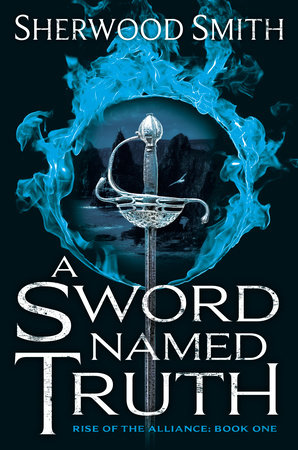 We interrupt this blog to bring you breaking news! (Well, I'm a little behind the times, as usual, (she posted about it on the 10th) but it's breaking for me!)
We interrupt this blog to bring you breaking news! (Well, I'm a little behind the times, as usual, (she posted about it on the 10th) but it's breaking for me!)Sherwood Smith returns to Sartorias-Deles to finally tell us what's going on with Norsunder at the end of A Stranger to Command. A Sword Named Truth is coming out in June (that's really soon!) and is the first book in a new series which is all written already! (I really hope the publishers don't drag out release dates!)
If you aren't already jumping up and down with excitement, here's me ranting about Sherwood Smith and explaining a bit about Sartorias-Deles. You've got a month to get caught up on the books she's got out already!
Saturday, April 13, 2019
Pride, by Ibi Zoboi
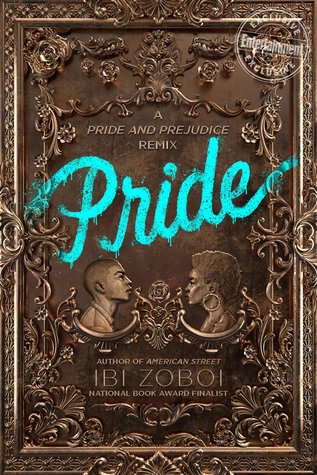 You saw that list of the books I've been reading. When I noticed Pride available as an e-book from my library, I downloaded it right away and opened it up, just to get a taste. Then I ignored everything else I was reading and devoured Pride from start to finish.
You saw that list of the books I've been reading. When I noticed Pride available as an e-book from my library, I downloaded it right away and opened it up, just to get a taste. Then I ignored everything else I was reading and devoured Pride from start to finish.Folks, this book is fine.
What drew me in and kept me riveted was the writing. Zuri's voice is wonderful. She's a poet, and she loves her world, and her fierce love and pride in her family, her people, her place come through in every word. Bushwick is noisy and colourful and rough around the edges* and Zuri likes it like that. In her narration and in her poems she brings to life the people, the smells, the textures, the music—along with her worries, her dreams, her desire to make things better. When a rich black family moves in across the street with two good-looking sons, Zuri's sisters think their dreams are about to come true. Zuri is afraid they're going to ruin everything she loves about her home.
First question you might ask about this Pride and Prejudice retelling set in Brooklyn: if you've never read Pride and Prejudice, will you enjoy this book? Absolutely yes: in the same way that you can enjoy Clueless without having read Emma. Pride is its own story with vivid characters that pop off the page while playing out an ageless plot.
If you love Jane Austen and hold P&P close to your heart, will this adaptation will make you cringe? On the contrary: like Clueless, Pride reimagines the original in a way that's fun but also sends you back to Austen with new perspective. Social and economic divides are both easier and harder to breach today than in Austen's time; watching hypocrisy and willful ignorance get skewered and roasted is every bit as satisfying.
Pride is a quick, compressed adaptation rather than a slavish retelling, so nothing is forced. Zuri's relationship with Darius could have used more development, but in truth this story isn't so much about the romance as it is about Zuri's perspective broadening—and the reader gaining insight into her world and the forces that are changing it, for good or bad.
Just as Austen expressed her love for the intimate details of family and social life in her small corner of Regency England, so Zoboi makes us fall in love with one small neighbourhood in Brooklyn, threatened by poverty and gentrification, held together by love.
I wish I knew what Haitian and Dominican food tasted like, but I have had jerk chicken, which Zuri can probably get in Bushwick. So spicy it's painful, but layered with complex flavours, tender and juicy. We get it here with sweet potato fries or plantain chips. So good!
*I really wanted to give you some quotations instead of paraphrasing, but e-books are too hard to find things in! You'll just have to go find your own copy of the book to hear Zuri's voice.
Sunday, April 7, 2019
What I'm Reading Now
I'm procrastinating doing reviews (because that always works so well for me) but I'm reading some great stuff!
Martha Wells, City of Bones. This woman can world-build; she is, like, the champion world-builder of all. I'm getting through her backlist while awaiting the Murderbot novel.
Kenneth Oppel, Inkling: love everything about this book!
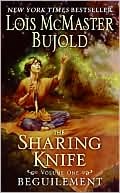 Lois McMaster Bujold, Sharing Knife series. Enjoyed the new novella so much I had to go back to the world. Her writing kills me sometimes, it's so wonderful.
Lois McMaster Bujold, Sharing Knife series. Enjoyed the new novella so much I had to go back to the world. Her writing kills me sometimes, it's so wonderful.
William Alexander, Ghoulish Song and Goblin Secrets: intriguing storylines in an inventive world. Not as funny as Ambassador and Nomad but really likeable characters.
Rebecca Roanhorse, Trail of Lightning: pretty gory so far, but I like the characters and the world.
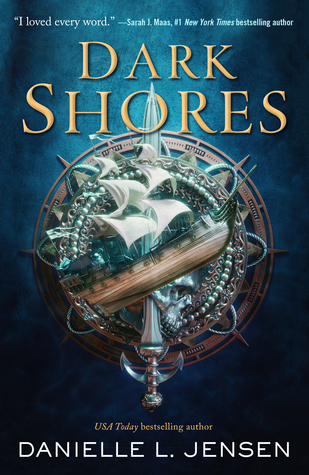 Danielle L. Jensen, Dark Shores: a Roman-like empire and an interesting sea-faring people (book blurb says pirates but they're really not); telepathic sea-monsters and magic transportation that sounds like wormholes. Pretty cool.
Danielle L. Jensen, Dark Shores: a Roman-like empire and an interesting sea-faring people (book blurb says pirates but they're really not); telepathic sea-monsters and magic transportation that sounds like wormholes. Pretty cool.
Also out from the library:
Ann Leckie, The Raven Tower. Forcing myself to finish all the above before I start this one!
Victoria Schwab, City of Ghosts
Meg Medina, Merci Suárez Changes Gears
G. Willow Wilson, The Bird King
Martha Wells, City of Bones. This woman can world-build; she is, like, the champion world-builder of all. I'm getting through her backlist while awaiting the Murderbot novel.
Kenneth Oppel, Inkling: love everything about this book!
 Lois McMaster Bujold, Sharing Knife series. Enjoyed the new novella so much I had to go back to the world. Her writing kills me sometimes, it's so wonderful.
Lois McMaster Bujold, Sharing Knife series. Enjoyed the new novella so much I had to go back to the world. Her writing kills me sometimes, it's so wonderful.William Alexander, Ghoulish Song and Goblin Secrets: intriguing storylines in an inventive world. Not as funny as Ambassador and Nomad but really likeable characters.
Rebecca Roanhorse, Trail of Lightning: pretty gory so far, but I like the characters and the world.
 Danielle L. Jensen, Dark Shores: a Roman-like empire and an interesting sea-faring people (book blurb says pirates but they're really not); telepathic sea-monsters and magic transportation that sounds like wormholes. Pretty cool.
Danielle L. Jensen, Dark Shores: a Roman-like empire and an interesting sea-faring people (book blurb says pirates but they're really not); telepathic sea-monsters and magic transportation that sounds like wormholes. Pretty cool.Also out from the library:
Ann Leckie, The Raven Tower. Forcing myself to finish all the above before I start this one!
Victoria Schwab, City of Ghosts
Meg Medina, Merci Suárez Changes Gears
G. Willow Wilson, The Bird King
Subscribe to:
Posts (Atom)
